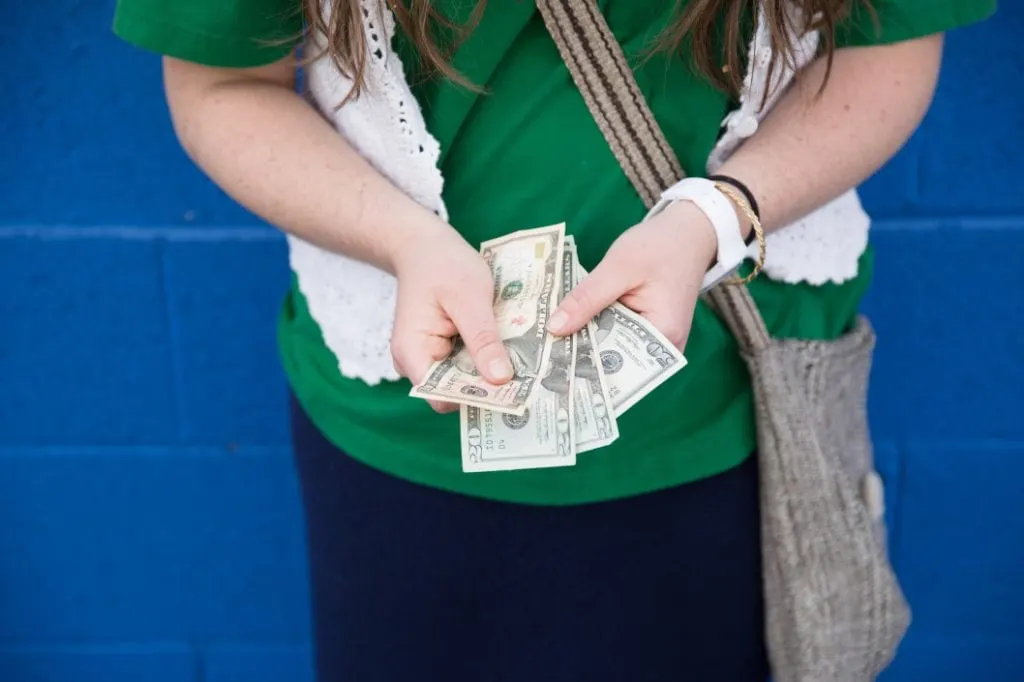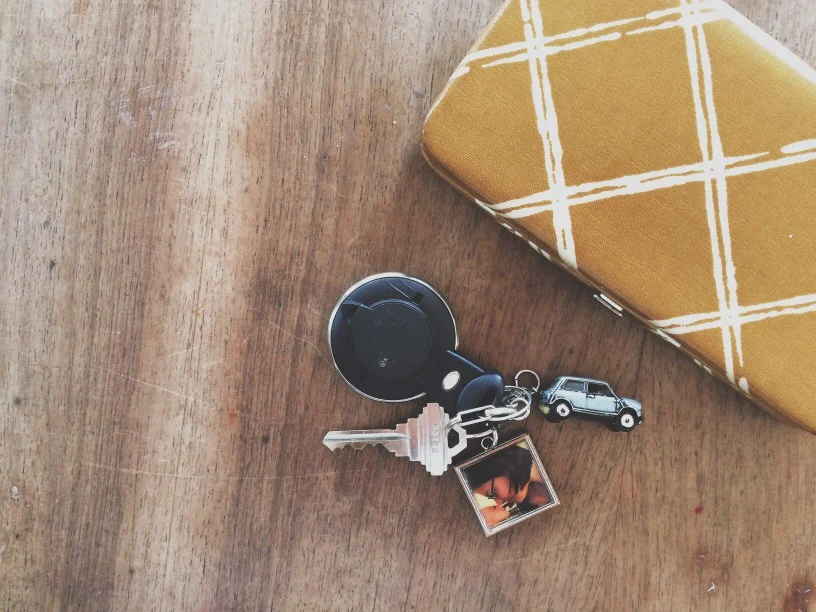There’s a big mental shift when you decide you want to become debt free. Most people don’t really think about it, and many don’t even know when their debts will be paid off. We have become so numb to debt that we don’t even realise that becoming ‘debt free’ is a possibility.
The average American has $38,000 in personal debt. That’s not including mortgages. A report in the UK found that three-quarters of people will never pay off their student debts. With findings like this, we can understand why so many people just think debt is a standard part of life.
But it doesn’t have to be.
In 2016 my husband and I made a conscious choice to pay off all of our debts as fast as we could. To be honest, we had hidden from it for so long and even right at the start we didn’t add up how much debt we were actually in.
It wasn’t until later when we worked out how much we had paid off that we realised we had eliminated over $120,000 of debt in less than 3 years.
While we didn’t know the exact numbers, we knew there was a fair amount of it, and we knew that if we were going to be successful we were going to have to give up a few things.
I’m not talking about our weekend brunches or take away coffees (although there was a little give in that). The biggest shifts came from our own mentalities.

That being said, these are some of the things we gave up to become debt free:
1 – Thinking We Had To Save Every Penny
The fastest way to giving up on your financial goals is by going hardcore minimalist and saving every penny.
I know it sounds like it’s counterproductive, but saving every single penny and tightening the budget so there’s no room to move is going to make you more frustrated than ever.
Chances are, if you have a fair amount of debt, you’re not going to pay it off in a few months, or maybe even a few years. You need to think about it in a long term kind of way.
Imagine you’re going on a diet and you have a lot of weight to lose. Sure, eating just cabbage and eggs every day will probably get you to lose weight (I have no idea… I’m not a dietician… just go with me on this), but how long can you really keep that up for?
You need something that is sustainable.

2 – Our Second Car
We’ve always had two cars, to us it just seemed like an essential thing. We both worked and needed to be able to get around, of course. But when we decided we were going to get serious in our goal to become debt free, we knew we were going to have to cut some things.
We reevaluated everything we had without thinking that anything was essential so we could determine if we actually needed it or not. And guess what ended up on the ‘non-essential’ list? Yup, our second car.
Because selling it was going to be a fairly big change, we decided to go without using it for a month to see if it was actually do-able. And it totally was. We just had to be a little more organised and it was easy!
We’ve been without our second car for over two years now and we don’t miss it. We’ve borrowed a car from a family member twice in those two years. Even if we had to hire a car for those times it would have cost significantly less than what we have saved in insurances, maintenance and general costs.

3 – Our ‘Treat Yourself’ Attitude
‘I deserve this’ is one of the phrases that was most damaging to our budget, especially for me. As someone who is all for self-care, I would never tell anyone they don’t deserve something… but, there came a point where I was using this phrase to justify any purchase I made.
Whenever I wanted something, I’d tell myself ‘I deserve this’ or ‘treat yourself, you’ve worked hard’. Which would have been okay… if I wasn’t doing it for everything I wanted.
We changed our ‘treat yourself’ attitude to a planned ‘treat’ every week that allowed us to feel like we were rewarding ourselves still, without destroying the budget and railroading our financial goals.
Because while yes, we did deserve the treats, we also deserved better and we deserved to achieve our financial goals.
One of my most favorite tools for managing and tracking my money is PocketSmith. It syncs all of our finances, including our loans and assets – which means it shows us our overall wealth. It’s also great for finding and tracking changes in our spending (so we can budget accordingly). I’ve tried so many different apps and this is the only one that I loved. PocketSmith is so easy to use and my husband loves how he can see how much we have left in our budget at anytime.

4 – Winging It
I remember thinking to myself that budgets were for people who couldn’t manage their money, or who didn’t earn a lot of money.
Which is such a strange thing now I look back on it because I’d been managing business budgets for multi-million dollar companies since I was 16 (I got my first Management position while I was still in High School).
I knew how to run a company for a profit, but I couldn’t translate that to my own personal finances.
Instead of just getting paid, spending money and hoping it would last until the next payday, we started budgeting our money.
It took a while to figure out what worked for us but now, no matter how much money we earn or how much money we have saved or what our financial goals are, we will always have a budget.
We should be running our personal finances like a business, and be running them at a profit, and that is only possible if we are smart and pay attention to our finances. No more winging it.
5 – Buying New Clothes
Buying new clothes was somewhat of an addiction for me. It was something I would do mindlessly anytime I was out shopping. I didn’t even need the new clothes… I just bought them.
So, I set myself a challenge to buy no new clothes for a year and it was actually a lot easier than what I thought it would be.
We used this time to add more minimalism into our lives and declutter our space, so it was a natural fit to stop overspending and mindless purchasing, which all ties into our money mindset (see #7).

6 – Regular Cafe Catch-Ups
Instead of going to the local cafe every few days for a lunch catch up, I kept it to once a week
Yup – I didn’t give it up completely and you don’t have to either!
If your coffee catch ups are your sanity moments, your chance to let the kids run around like crazy, or your time out, or your moments to connect with your friends, then there is no reason you need to give them up!
I would ‘schedule’ all of my catch ups on one day so I wasn’t buying 3 lunches each week, but I was still able to spend time with friends and family.
My coffee catch ups were important to me and I knew I didn’t want to give them up entirely, so I just budgeted for them instead.
It did mean I had to be more mindful about planning them, and there were times when I had to say no to catch ups because they were more than what I had budgeted for, but we simply scheduled them in for the following week.

7 – Our Money Mindset
In order to change the way we treated money we needed to change our money mindset. If you’re reading this and thinking you don’t have a money mindset, I’m sorry to break it to you but you do. You really do. We all do. And when we start to understand our money mindset, everything with our finances becomes clearer.
When we decided we wanted to become debt free, we had to give up the money mindset we had been carrying around for so long and learn how to transform it into a mindset that would help us pay off our debt and create a life we loved.
It’s not as scary as you think, and honestly, we both love it. We read books, listened to podcasts, talked and talked and it helped us to really understand not only ourselves, but each other and how we both approach money.
Our money mindset is something we always work on, there are always new money blocks that jump up, but giving up our old money mindset was one of the best things we have ever done.
Our path to becoming debt free wasn’t all about giving up the things we loved, it was about working out what was important to us, how we could include that in our budget while still working towards our financial goals, and how we could simplify and give up the excess.
Becoming debt free does take some sacrifice because the life you’ve been living has led you to the position you are in now, but that doesn’t mean the changes are for the worse. We have so much more happiness and freedom now than ever before and we love it.













